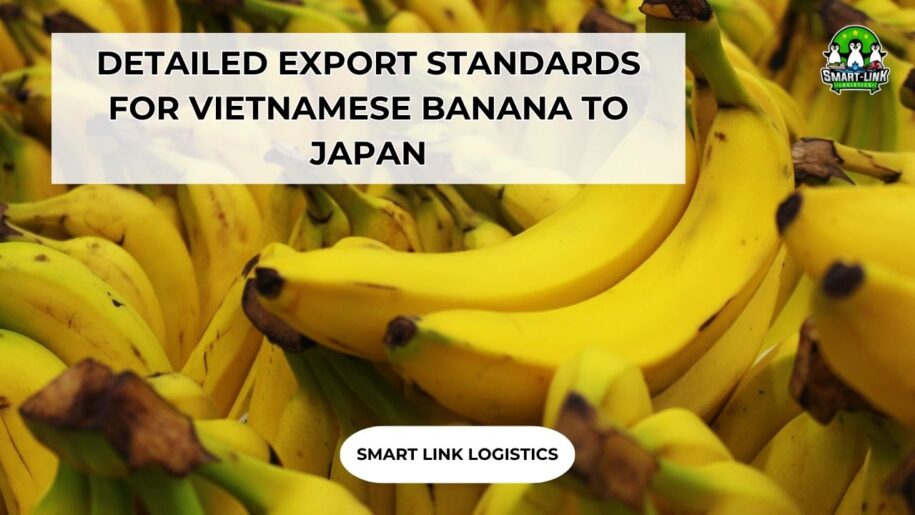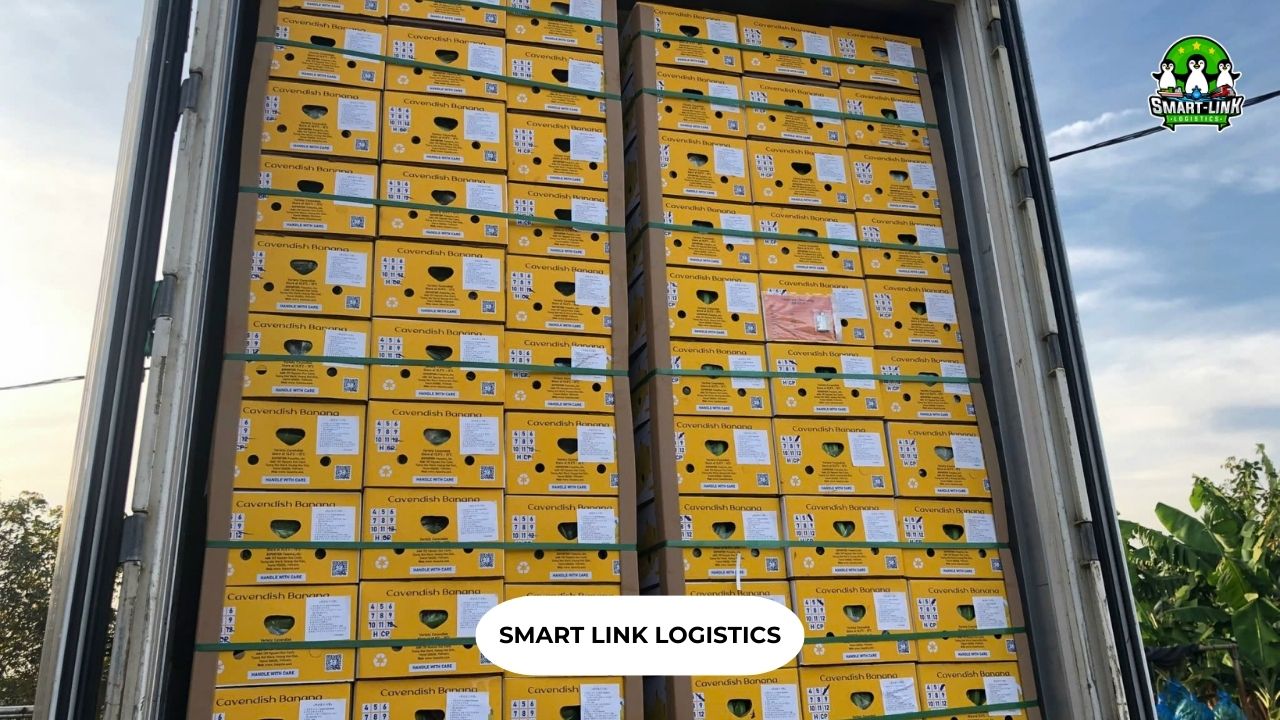
DETAILED EXPORT STANDARDS FOR VIETNAMESE BANANA TO JAPAN
Exporting banana to Japan is becoming an increasingly promising and effective path for Vietnamese agricultural enterprises. With their sweet taste, easy-to-eat texture, and compatibility with Japanese consumer preferences, Vietnamese bananas are gaining recognition in this highly selective market. However, to fully capitalize on this opportunity, businesses must thoroughly understand the technical standards and mandatory preservation procedures required for exporting bananas to Japan.
Current Status of Banana Exports to Japan
According to the Ministry of Industry and Trade, banana exports to Japan have experienced encouraging growth in recent years. Specifically, Vietnam exported approximately 5,700 tons of bananas to Japan with a total value of 687.9 million yen (equivalent to around USD 4.6 million), representing a year-on-year increase of over 20% in volume and nearly 38% in value.
This growth indicates that Japanese consumers are increasingly favoring Vietnamese bananas, attracted by their appealing flavor, consistent quality, and competitive pricing.
Why Vietnamese Banana Have Potential in Japan
Unlike price-sensitive markets, Japanese consumers are willing to pay a premium for high-quality products. They place strong emphasis on food safety, traceability, and standardized production processes. Vietnamese bananas, known for their naturally sweet flavor and palatable texture, are gradually gaining a reputation for reliability—helping them penetrate the Japanese market more easily.
Moreover, successfully entering the Japanese market often serves as a gateway to other demanding markets such as South Korea, the EU, and the U.S.

Key Standards for Exporting Banana to Japan
To export bananas to Japan successfully, businesses must meet strict technical, preservation, and packaging requirements. Below are some of the key criteria:
1. Certified Production Process
-
Banana plantations must be registered and issued with a planting area code by the Ministry of Agriculture and Rural Development.
-
Packing facilities must also be certified and closely monitored for quality control.
-
The use of pesticides must comply with Japan’s permissible list and residue thresholds.
2. Temperature Control
-
After harvest, bananas must be promptly processed and stored in cold rooms at temperatures between 12°C and 14°C to preserve freshness and avoid premature ripening.
-
Temperatures below 12°C should be avoided as unripe bananas may suffer cold damage.
-
Controlled ripening can be induced by adjusting the temperature to 15°C–20°C during specific stages.
3. Humidity Levels
-
Maintain relative humidity between 70% and 85% to inhibit bacterial growth and slow down the natural ripening process.
4. Storage Duration
-
When properly stored, bananas can retain their quality for up to 40 days (nearly six weeks). This extended shelf life is especially advantageous for long-distance shipments, including those to Japan.
5. Packaging Specifications
-
Bananas should be wrapped in polyethylene bags approximately 0.4 mm thick to minimize ethylene exposure, a natural gas that accelerates ripening.
-
They should then be placed in high-strength, impact-resistant carton boxes to prevent bruising during transportation.
-
For ground transportation prior to export, using specialized vehicles equipped with hanging systems for banana bunches is highly recommended to ensure product integrity.
Benefits of Exporting Banana to Japan
-
Higher product value: Japanese consumers prioritize quality, leading to higher selling prices compared to conventional markets.
-
Strengthening the Vietnamese agricultural brand: Gaining popularity in Japan enhances brand reputation and supports expansion into other premium markets.
-
Stable income for farmers: Exporters can establish long-term contracts with growers, contributing to sustainable livelihoods in banana-producing regions.
Conclusion
Japan is not only a lucrative market but also a “passport” for Vietnamese agricultural products to reach global consumers. Exporting banana to Japan requires careful investment in all stages—from production and preservation to packaging and quality control. By strictly adhering to these standards and procedures, Vietnamese enterprises can unlock high added value and long-term potential in this discerning market.
Hotline: + 84 902 964 982 to know more about our services

If you require assistance with international import and export of goods, please contact our team at Smartlink Logistics. We are available to provide you with professional guidance on our services and the necessary customs procedures.
SMART LINK: BEST SERVICE BEST YOU


































